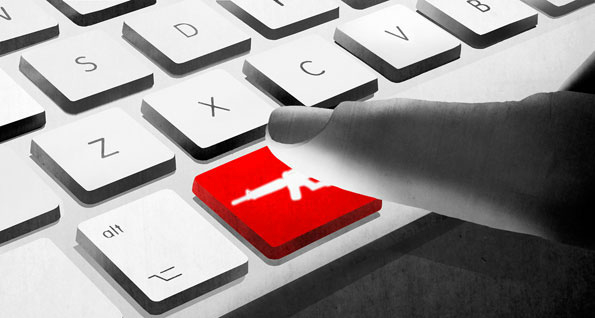Number of attempted cyber attacks in Britain doubles
11/18/2015 / By Greg White

Terrorists have long tried to hack nuclear power plants in order to cause chaos and terror. Alarmingly, these attacks have increased in recent months. According to the UK’s Government Communications Headquarters (GCHQ), major cyber attacks that could decimate Britain’s energy supply have doubled in a year. Spy chiefs report that Britain’s listening post has identified over 200 significant cyber attacks, or seven a day, compared to 100 a day last year.[1]
The threats are wide and varied. Cyber terrorists take on a variety of guises, from lowly freelance hackers to hostile foreign states. The Internet is the backbone of the world’s infrastructure, and attacking a country by using the Internet could potentially cause a nation’s collapse. Many people, in fact, have argued that if World War 3 were to happen today, it would be waged neither on land nor air, but through the abstract world of cyberspace.
Bringing down the backbone of the economy
Ciaran Martin, Director-General for Cyber Security at GCHQ, explained to sources how the UK is subject to dangerous cyber attacks every single day.
“These are attacks that are of significance to national security. That is either because of who the aggressor or the victim is or because of the nature of the attack,” he said.[1]
These remarks were underlined by Mr. Martin the previous summer, when he said the cyber threat to Britain was “chronic, advanced and persistent.”
Since the country’s infrastructure is so dependent upon the Internet, a major cyber attack could bring Britain’s economy and military defenses to a grinding halt. A large enough cyber attack could bring down the country’s nuclear infrastructure, electricity, computer networks, water networks, phones and transportation systems, thereby causing chaos overnight.
That’s just the tip of the iceberg, unfortunately. Cyber terrorists could also indirectly hijack vehicles with nothing but a laptop and cellphone. More worrisome is the fact that a truly savvy hacker could take control of a plane and cause it to crash.
Ministers plan to publish the National Security Strategy (NSS) this month, which will note all the Internet risks that could pose a threat to Britain because of the online dependence of Whitehall, businesses and people.[1]
Not all threats are created equal, however. The most dangerous threat is considered a “Tier 1” threat, which “comprise acts of international terrorism, hostile computer attacks on UK cyberspace, a major accident or natural hazard such as a flu pandemic, or an international military crisis between states drawing in the UK and its allies.”[2]
The data provided by Martin reveal cyber attacks or attempted cyber attacks that the agency deems extremely dangerous. Such threats include potential attacks on national infrastructure by crime groups or hostile states.
Officials also warned that advanced hacking technology is becoming increasingly available on the web, meaning, more and more people can now launch cyber attacks from the comfort of their own homes. Simple technologies that can flood a computer with emails and hang up the system can now be purchased for a few pounds.
A recurring threat
Cyber attacks are becoming increasingly common. Just last month, for instance, a hacker stole personal information from more than 156,000 TalkTalk customers. Research suggests that as many as 9 out of 10 British businesses have been victims of cyber attacks in one form or another, costing the economy tens of billions of pounds.
Martin cautioned the GCHQ and the government as they launched the £6.5 million Cyber Invest program, which includes collaboration with academic experts and the private sector to provide research on how to thwart cyber attacks.[1]
Speaking at an Information Assurance Conference in London, Cyber Security Minister Matthew Hancock said that defenses for government email are stopping approximately 33,000 cyber attacks a month.[1]
Individuals can prevent the risk of cyber attacks by regularly patching firewalls, updating firmware, setting strong passwords, changing the Wi-Fi router password and installing anti-virus software.[3]
Sources:
[1] DailyMail.co.uk
[2] BBC.com
[3] TheGuardian.com
Tagged Under: Britain, cyber warfare, cyberattacks, GCHQ, hacking, privacy


















